Dr. Cynthia Hazel is a public health expert. Her husband, Dr. Kweku Hazel, is a surgeon. Both understand that some people of color are hesitant to get COVID-19 vaccines. The Hazels are eager to show that vaccines are safe, while helping leaders more effectively reach out to Black people, immigrants and other underserved people. Photos by Cyrus McCrimmon for UCHealth.
When Dr. Kweku Hazel received his COVID-19 vaccine, he asked a fellow health care worker to snap his photo.
Yes, the moment was historic. But Hazel, a surgical fellow at UCHealth University of Colorado Hospital, also had a special purpose. He wanted to share details about receiving his vaccine with family, friends, and members of his community to try to reassure them that the COVID-19 vaccine is safe.
Hazel is an immigrant from Ghana, West Africa, and knows that many people of color worry about discrimination in health care settings, and thus, may be hesitant to get the COVID-19 vaccine. Hazel, now in his 30s, came to the U.S. as a student at age 17. He went to college and medical school in Texas, and started a program during medical school to reach out to Black people at barbershops and salons to boost awareness about the risks of high blood pressure, a common health challenge for African Americans.
Today, Hazel and his wife, Cynthia Hazel, who has a doctorate in public health, are determined to reach out to underserved people in their hometown of Aurora, the most diverse city in Colorado, and home to UCHealth University of Colorado Hospital. Cynthia is also from Ghana. She and Kweku knew each other as children before he left for the U.S. They met again when he visited Ghana in his 20s. They married six years ago and now have a 2-year-old son and an infant daughter. Cynthia earned her degree in 2019 from the Colorado School of Public Health on the Anschutz Medical Campus. She’s now a researcher for the Omni Institute, a Colorado-based non-profit social science consulting firm, which provides research services to public health agencies in Colorado and around the U.S.
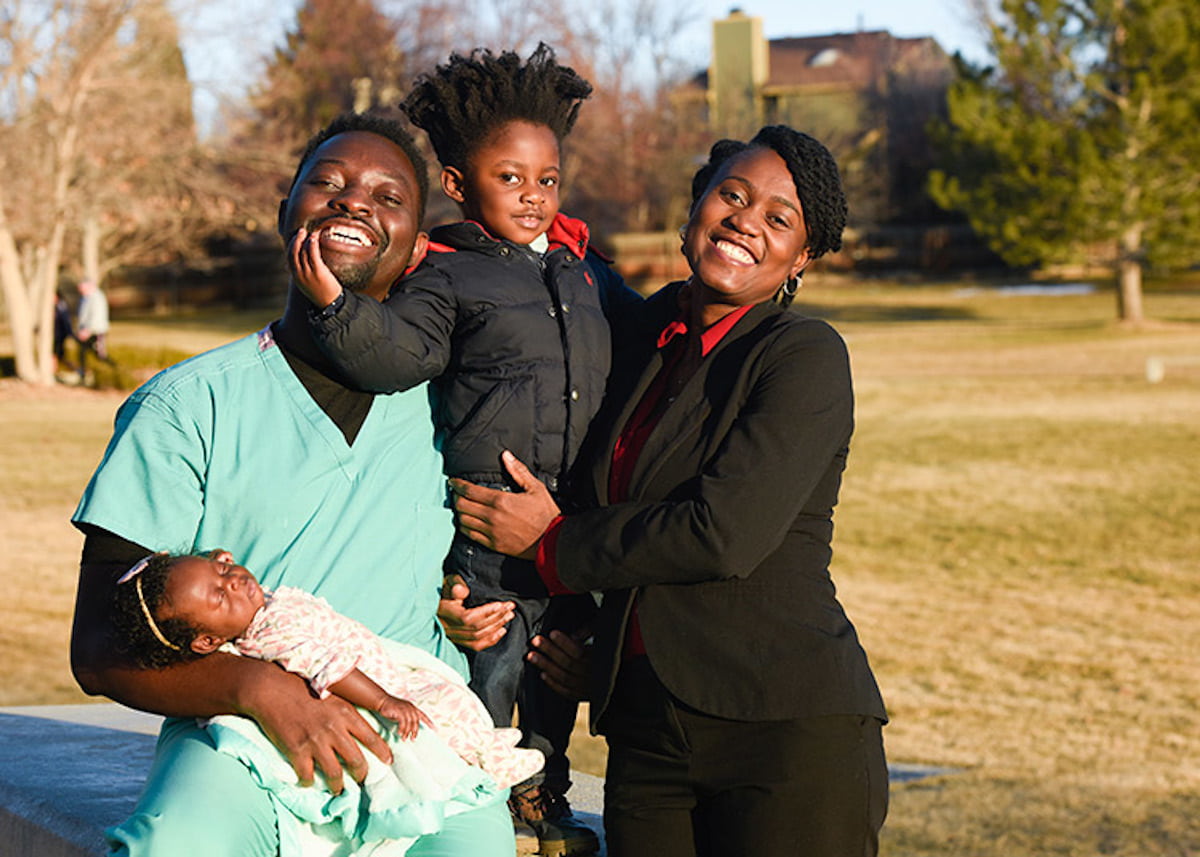 Drs. Kweku and Cynthia Hazel are proud residents of Aurora, Colorado’s most diverse city. Here, they pose in an Aurora park with their 2-year-old son and their infant daughter, who was born in October.
Drs. Kweku and Cynthia Hazel are proud residents of Aurora, Colorado’s most diverse city. Here, they pose in an Aurora park with their 2-year-old son and their infant daughter, who was born in October.
Dr. and Dr. Hazel know how important it is for people in communities of color to get information about COVID-19 vaccines and other health issues from people they trust, like family, friends, doctors, and community leaders, including religious leaders. In the past, the Hazels have teamed up to do health talks at churches and community centers in Aurora. While the pandemic has interfered with in-person education sessions, the Hazels want to share a clear message about vaccines now.
They strongly recommend getting the COVID-19 vaccine. But, if people of color are hesitant, the Hazels say it’s important for health professionals to listen to patients’ concerns, validate them and advise accordingly. It’s also vital to give people appropriate information and control of their health choices. What’s more, bringing vaccine clinics to people in their communities could be far more effective than requiring people of color, immigrants and other underserved people to seek out vaccines at hospitals and clinics.
Kweku learned the value of reaching people where they are comfortable while doing blood pressure checks at barbershops and salons during medical school.
“We started by training fellow medical students in cultural competency to appropriately engage barbershop owners in their spaces. Once we were welcomed, we made personal connections, then began health education,” said Kweku, who was a student at the time at the Texas Tech University School of Medicine in Lubbock.
“Relationships seemed to make the biggest difference,” he said.
Kweku and fellow medical students got to know the barbershop owners well. The owners, in turn, encouraged customers to further engage with the medical students, building trust in the process.
“We could answer medical questions and have regular conversations as well,” Kweku said. “That experience changed my approach to practicing medicine and taking care of underserved populations.”
The program Kweku started is 12 years old and continues at Texas Tech today.
A safe vaccine in an incredibly safe environment
Kweku came to Colorado to do his residency in general surgery. He completed his residency and is now a fellow in minimally invasive surgery. After getting his COVID-19 vaccine in late December, Kweku mounted an informal information campaign. He quietly began sharing his photo and multiple detailed emails with friends, family and community members.
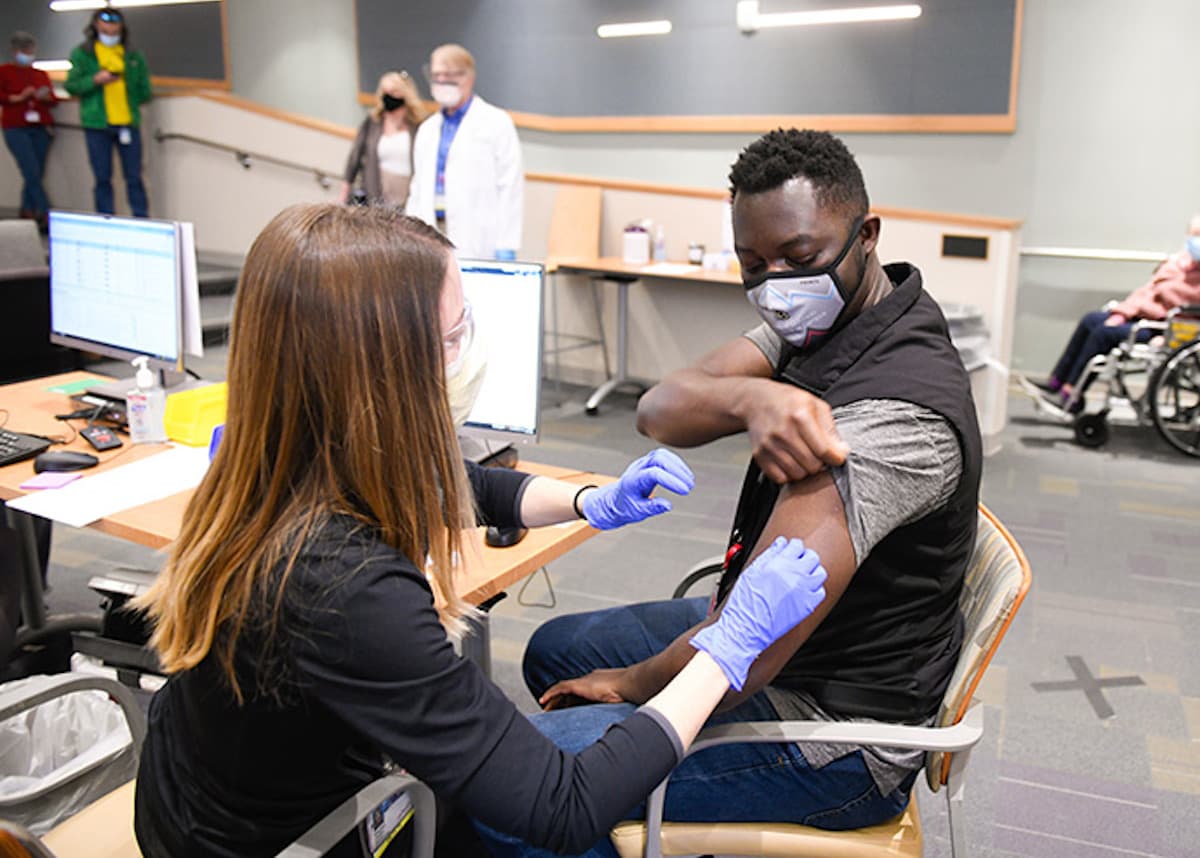 Nurse practitioner Meg O’Meara gave Dr. Kweku Hazel his first dose of the COVID-19 vaccine in late December at UCHealth University of Colorado, where Hazel is a surgical fellow. He’s been sharing updates about getting his vaccine since then. Hazel had worked with O’Meara in the past and said it was great to receive his vaccine in such a well-supervised setting.
Nurse practitioner Meg O’Meara gave Dr. Kweku Hazel his first dose of the COVID-19 vaccine in late December at UCHealth University of Colorado, where Hazel is a surgical fellow. He’s been sharing updates about getting his vaccine since then. Hazel had worked with O’Meara in the past and said it was great to receive his vaccine in such a well-supervised setting.
“I’m aware that a lot of people have needle phobias. So, I told them that I barely felt the injection. It’s a very small-gauge needle. Then, I talked about how I was monitored for 15 minutes immediately after getting my vaccine.”
One of the nurses Kweku had worked with in the past administered his vaccine and medical experts were overseeing everyone who was receiving vaccines, which gave him great confidence too.
“I’ve never received a vaccine with that many health professionals watching over everything: senior and junior physicians, nurse practitioners, pharmacists, with everyone working together,” Kweku said.
His email updates were straightforward: the initial injection hurt him less than a flu shot, but as expected, his left arm, where he received his vaccine, was a little sore later in the day. He had no other symptoms, and within 36 hours, his arm felt fine.
Discrimination: From Tuskegee to private stories of racism
Historical discrimination of Blacks in medical setting is becoming better known in the U.S. Many students learn about the Tuskegee Syphilis Study. In 1932, researchers with the U.S. Public Health Service recruited about 600 African American sharecroppers in Tuskegee, Alabama, to participate in a study. Many had never seen doctors throughout their lives and were lured with the offer of “free medical care.” They were never informed that the study focused on syphilis. The experiment went on for 40 years until a reporter for the Associated Press exposed the research in 1972.
“Of about 600 Alabama black men who originally took part in the study, 200 or so were allowed to suffer the disease and its side effects without treatment, even after penicillin was discovered as a cure for syphilis. Treatment then probably could have saved or helped many of the experiment participants,” Jean Heller of the Associated Press wrote.
More recently, students have begun to learn about a Black woman in Maryland named Henrietta Lacks. She was suffering from cervical cancer in 1951 when doctors harvested her cells without telling her. Lacks’ cells grew so prolifically that they became the foundation of a great deal of modern medical research. Yet, Lacks’ cancer killed her, and she died in poverty.
Throughout the pandemic, Black and Latinx people have been much more likely to become critically ill and to die from COVID-19. For example, a Black doctor, Susan Moore, described how hospital workers in Indiana failed to acknowledge and treat her symptoms. Soon after speaking out about the discrimination she suffered, Moore died from COVID-19.
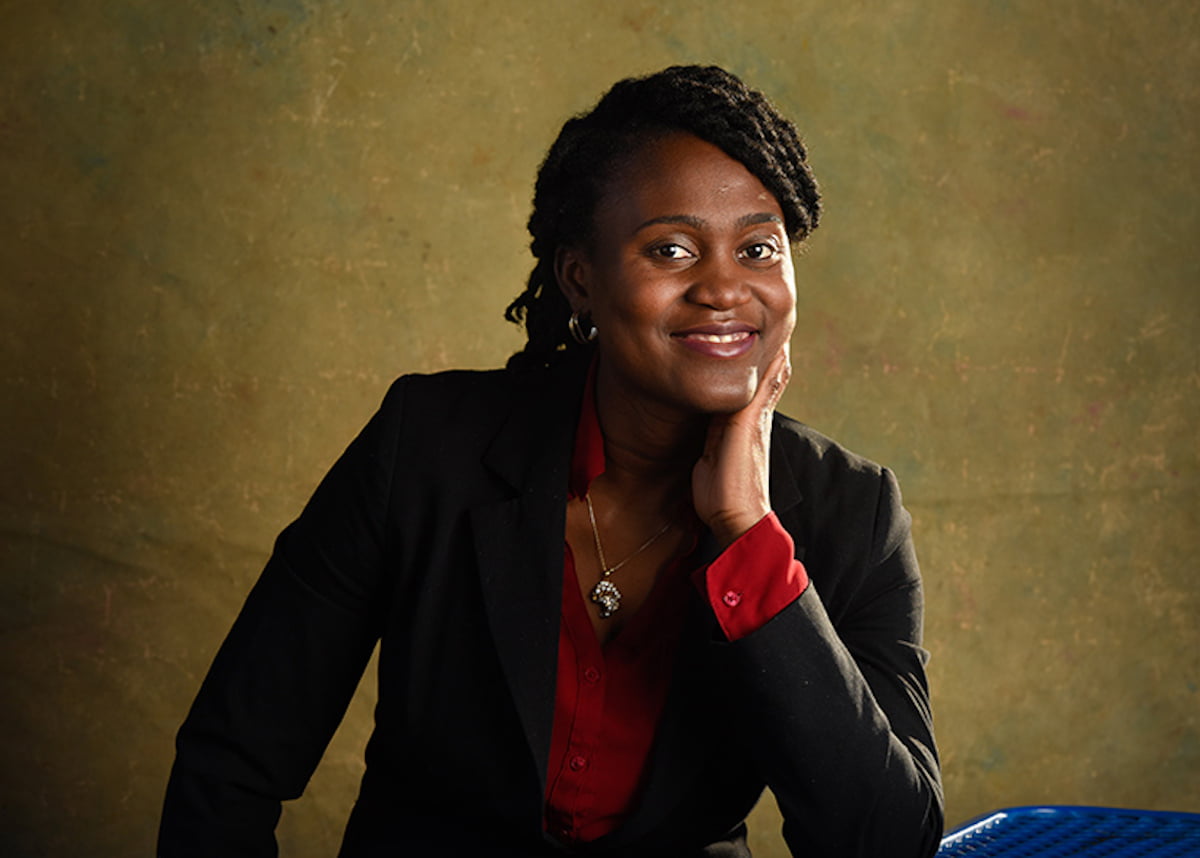 Cynthia Hazel is an expert on public health and reaching underserved communities. She said creative efforts to bring vaccines to Black people and immigrants in their communities could boost support for COVID-19 vaccines.
Cynthia Hazel is an expert on public health and reaching underserved communities. She said creative efforts to bring vaccines to Black people and immigrants in their communities could boost support for COVID-19 vaccines.
While it’s critical to learn about historical discrimination, the Hazels say Black people may be swayed far more by everyday experiences and the current stories they hear from family and friends.
“Many Black people have stories about how they felt their knowledge of their own bodies were ignored in care recommendations. Or, they have been silenced. Or, they have been viewed suspiciously in care interactions,” Cynthia said. “All of these experiences have an impact on how people view healthcare today. On a systemic level, we need to focus on how health care organizations and providers treat people of color, both explicitly and implicitly.”
Added Kweku: “I think Tuskegee is typically what you hear about through formal education. But there are a lot of anecdotes within families that never make it to textbooks.”
Black people want to know whether vaccines were tested on people of color
One of the biggest concerns about the COVID-19 vaccines among immigrants and people of color centers on the speed with which the vaccines were developed as well as questions about safety. Misinformation is common, the Hazels said.
Kweku and Cynthia both have been surprised to learn that people with access to information still sometimes incorrectly believe that vaccines can cause the illness they are supposed to fight. While COVID-19 vaccines were developed in record time, researchers did not skip steps. Rather, vaccine makers compressed all the steps, conducting clinical trials, while simultaneously manufacturing vaccines.
Kweku had been following news closely through 2020 regarding COVID-19 vaccines. He carefully analyzed results from the clinical trials. He was pleased that the clinical trials for the two vaccines that have been approved so far in the U.S. — Pfizer BioNTech and Moderna — both included people of color.
About 20% of those who participated in Moderna’s clinical trials were Latinx, while 10% were Black, 4% were Asian and 3% were from other ethnic and racial groups. For the Pfizer BioNTech vaccine, about 13% of study participants were Latino, 10% were Black, 5.5% were Asian and 1% were Native American. Michael Rouse was among the people of color who participated in the Moderna trial in Colorado. Click here to read about Rouse.
When Kweku reviewed results from the clinical trials, he was eager to get his vaccine.
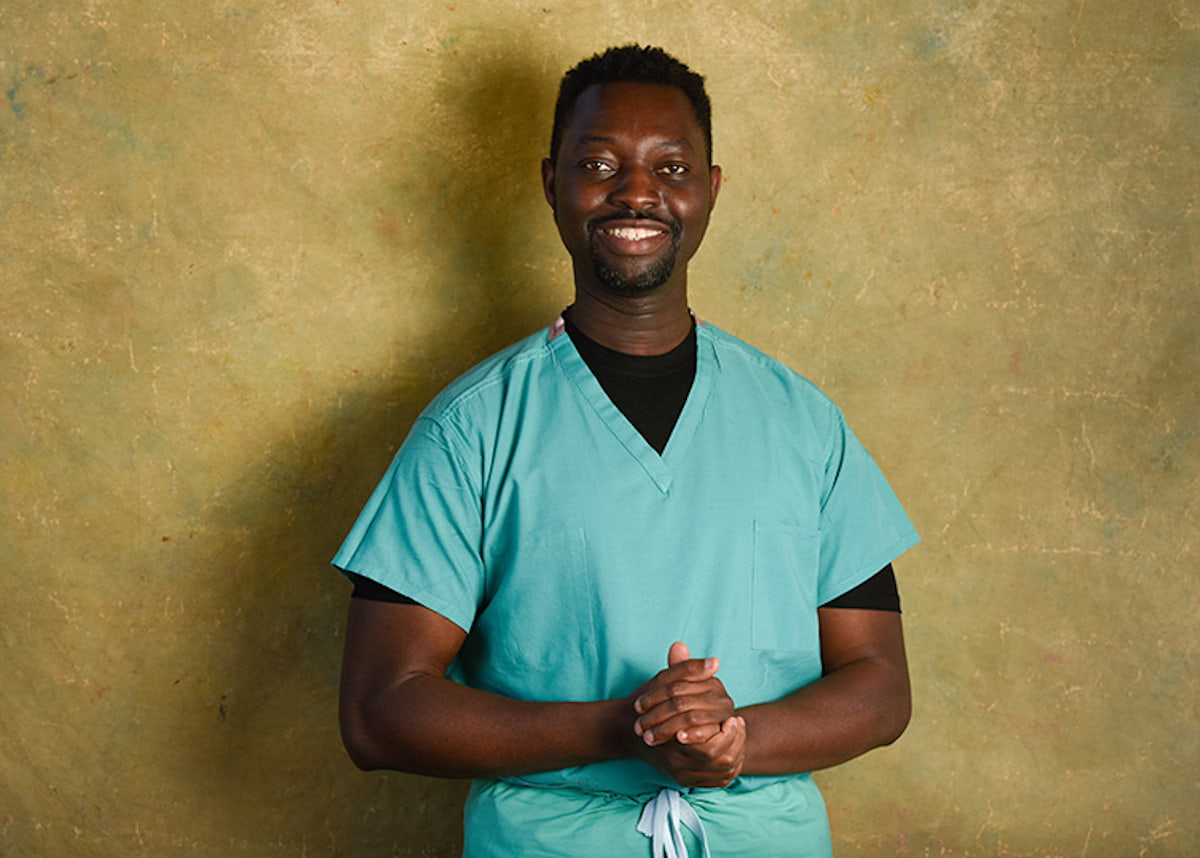 Kweku Hazel studied the results from COVID-19 clinical trials. He was pleased that vaccine makers tested the vaccines on people of color. Since getting his first vaccine dose, Kweku has been sharing updates with friends, family and community members to build support.
Kweku Hazel studied the results from COVID-19 clinical trials. He was pleased that vaccine makers tested the vaccines on people of color. Since getting his first vaccine dose, Kweku has been sharing updates with friends, family and community members to build support.
“It was pretty obvious to me that these vaccines were going to be safe and very effective in fighting the pandemic, in addition to wearing masks and social-distancing,” Kweku said. “I want to protect myself, my family, and my community.
“And, I felt like getting the vaccine gave me the opportunity to have others see that I’m getting it. Maybe I can help convince other people, whether they are people of color or not, that this vaccine is safe.”
Kweku was drawn to medicine after seeing one of his grandparents struggle with a fatal health challenge. His mom is a clinical pharmacist, and Kweku became the first in his family to become a physician. While he can impact people one at a time, he salutes Cynthia for being able to have more widespread impact on communities and policy makers.
Cynthia is an expert in community and behavioral health. Her primary focus is on health equity and health disparities. And, her research interests include the use of digital health technologies to help health providers better connect with people from various cultures and ethnic and racial groups.
“I can affect patients. She can influence policy,” Kweku said.
Fastest ways to reach people of color: Bring vaccines to them, partner with trusted organizations
As for getting vaccines into the arms of as many people of color as possible, Cynthia recommends working through trusted, existing organizations.
“One of the fastest ways to reach minority populations and historically disenfranchised groups is to go through organizations that already have existing relationships with the community,” Cynthia said.
The barbershop model could work well. And religious organizations are great places to reach and educate people.
As Cynthia said, “Reaching out to churches is stereotypical, but it does work. We have lots of people who listen to their church leaders. Historically, Black people haven’t had the luxury of having a lot of heroes or leader figures from diverse backgrounds to look up to. We’ve found inspiration through our religious leaders, who can also act as key influencers in achieving desired health actions.”
It’s also true that people can become convinced by those around them. Hence, support for COVID-19 vaccines seems to be increasing around the U.S. as people see pictures of frontline workers, like Kweku, getting their vaccines.
“From a public health perspective, there is a concept called collective efficacy,” Cynthia said.
If people around you are getting vaccines, “you become more convinced that you also have the ability to do so. If they can do it, I can also do it. Then we all can do it together.”
The public-facing communication strategy needs to be more creative, Cynthia said.
She also warns that messages about COVID-19 vaccination could be poorly received if they come only from individuals who appear to be out-of-touch with the community. “Easy for you to say,” could be a common response to a person of privilege who is perceived to be unaware of the unique or additional challenges that immigrants, people of color and others have coped with throughout the pandemic.
Acknowledge concerns, then vaccine support may grow
Misinformation has been rampant throughout the pandemic. But Cynthia says it’s still possible to influence people and encourage them to get vaccines. If that’s going to happen, it’s vital for people of color to see messages from people who look like them, not just from white politicians, white doctors and white epidemiologists.
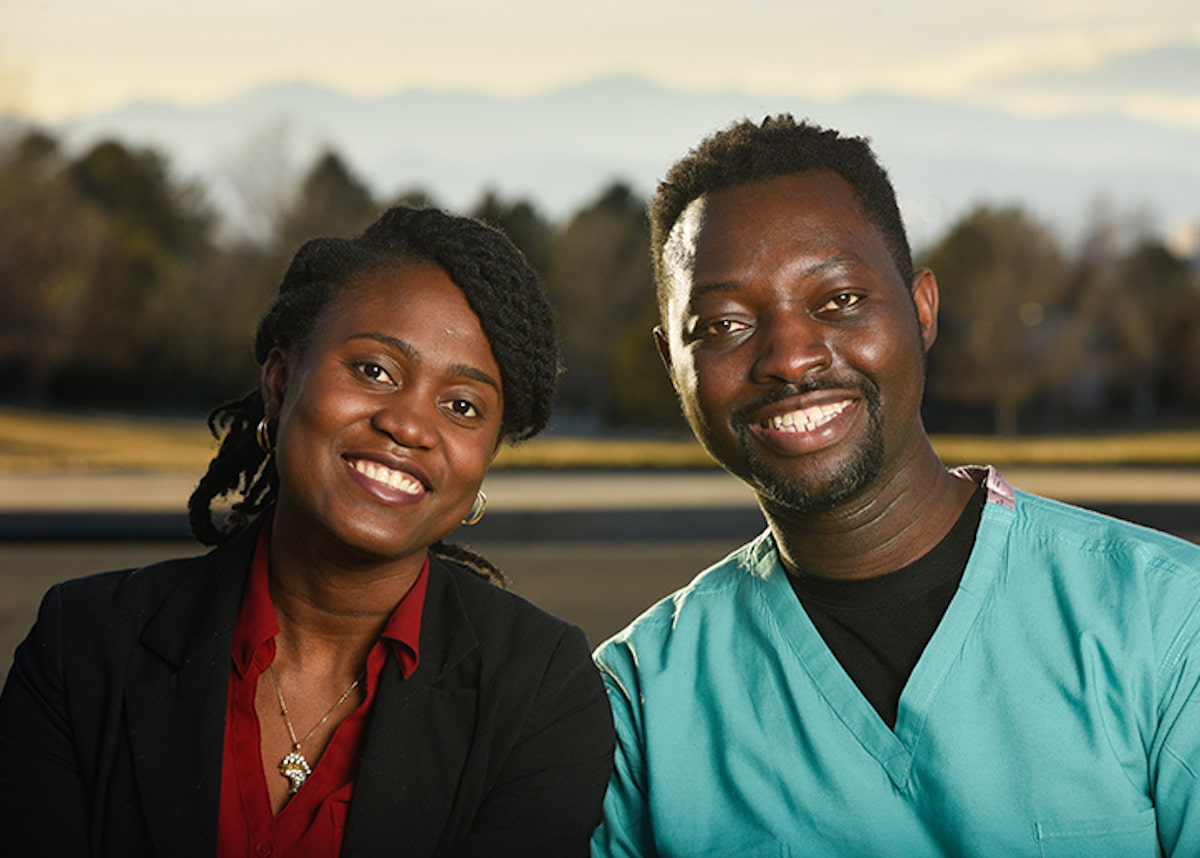 Cynthia and Kweku Hazel say it takes time to reach people of color with health messages. They’ve done health talks in the past at churches and barbershops and are eager to promote the safety of COVID-19 vaccines.
Cynthia and Kweku Hazel say it takes time to reach people of color with health messages. They’ve done health talks in the past at churches and barbershops and are eager to promote the safety of COVID-19 vaccines.
“We live in the most diverse city in the state. We would like to see faces that are more representative of our communities, or culturally-competent individuals who can communicate appropriately,” she said.
Overall, both Cynthia and Kweku are hopeful and optimistic that if the messaging is right, and if people are approached with sensitivity, they may be persuaded.
“With people of color, the message framing matters,” Cynthia said. “We can’t be tone-deaf to the challenges people face with the healthcare system.
“Education is important. Point people to accurate resources. Give people information they can read and understand themselves.
“I would encourage everybody to take the COVID-19 vaccine,” Cynthia said. “To state and local public health leaders, the traditional distributions methods can’t be the only way. We’ve got to be more creative to expand our reach.”
This story was originally posted for UCHealth.




-Jul-14-2024-05-26-15-0673-PM.jpg)
-4.jpg)